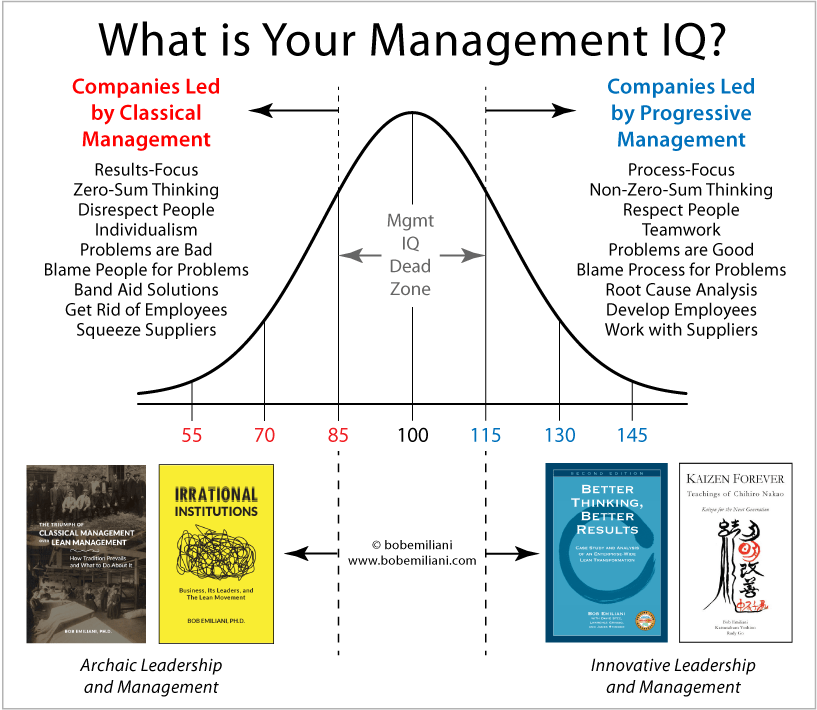Anyone who has studied the history of management practice since the late 1800s eventually comes to realize that despite all the effort to advance the practice of management, surprisingly little has come of it. Even if you have no knowledge of the history of management but have worked in organizations for a decade or more, you know that the pervasive underlying practice remains classical management. Sure, each generation of leaders adopt certain new management tools or methods here and there, but overall the approach to managing people and processes is largely unchanged.
More than 14 decades have been invested in developing innovative management practices, research, training, and teaching to raise the management intelligence quotient (IQ) of those changed with leading organizations, from CEO to supervisor. Untold numbers of people have dedicated their lives to improving management and leadership practice. But all we have to show for it is the rare (1 in 500 or so) CEO or president who dares to lead in progressive, rather than archaic regressive ways. While the reasons for this are now clear (see here and here), the current situation is far from satisfactory given the ever-more pressing need for progressive management as time goes by.

The image above depicts the persistent retardation of management IQ caused by the stubborn adherence to classical management due to numerous interlocking economic, social, political, historical, philosophical, legal, business, and spiritual preconceptions. It seems that in the context of business, or organizations generally, human management intelligence does not rise above the low IQ of 85.
The region between IQ of 85 and 115 is labeled a dead zone because leaders’ management intelligence is either below average (remember, no substantive change in fundamental thinking and practice after 14 decades) or above average (the rare CEO or president to dares to manage differently). There is no leader with average management IQ. They do not exist. The 85 to 115 IQ gap (chasm, actually) is the so-called “Lean leap” that one must take to enter into the realm of modern progressive management practice (see here and here) which began its development in the late 1880s.
As followers we give our consent, weak though it may be, to CEOs and presidents to lead and manage in the ways that they do. We choose which leaders to follow and we do not put up a fuss if they fall below our personal or societal needs and expectations. Instead, we accept them and the glacial pace of change that they remain committed to. The kinds of leaders we need are not the ones we follow. We must change that and instead look for opportunities to follow the kinds of leaders we need. And the successful leaders need to make their superior work known to society at-large instead of their small cult of followers or other (assuredly disinterested) leaders. Society at-large needs to learn that the management practice they have long known is not the best there is.
